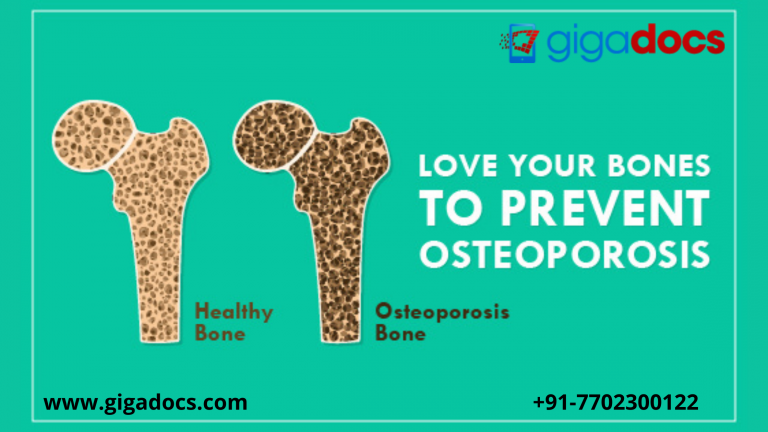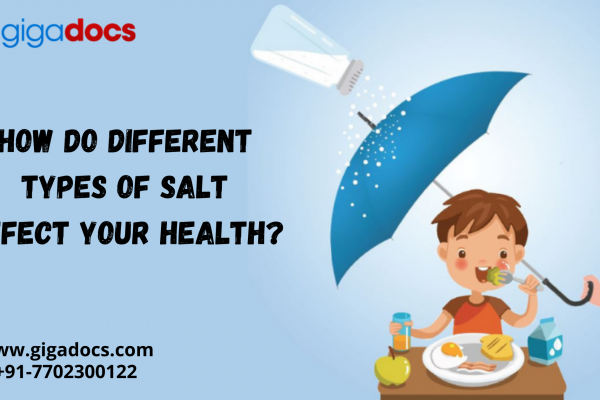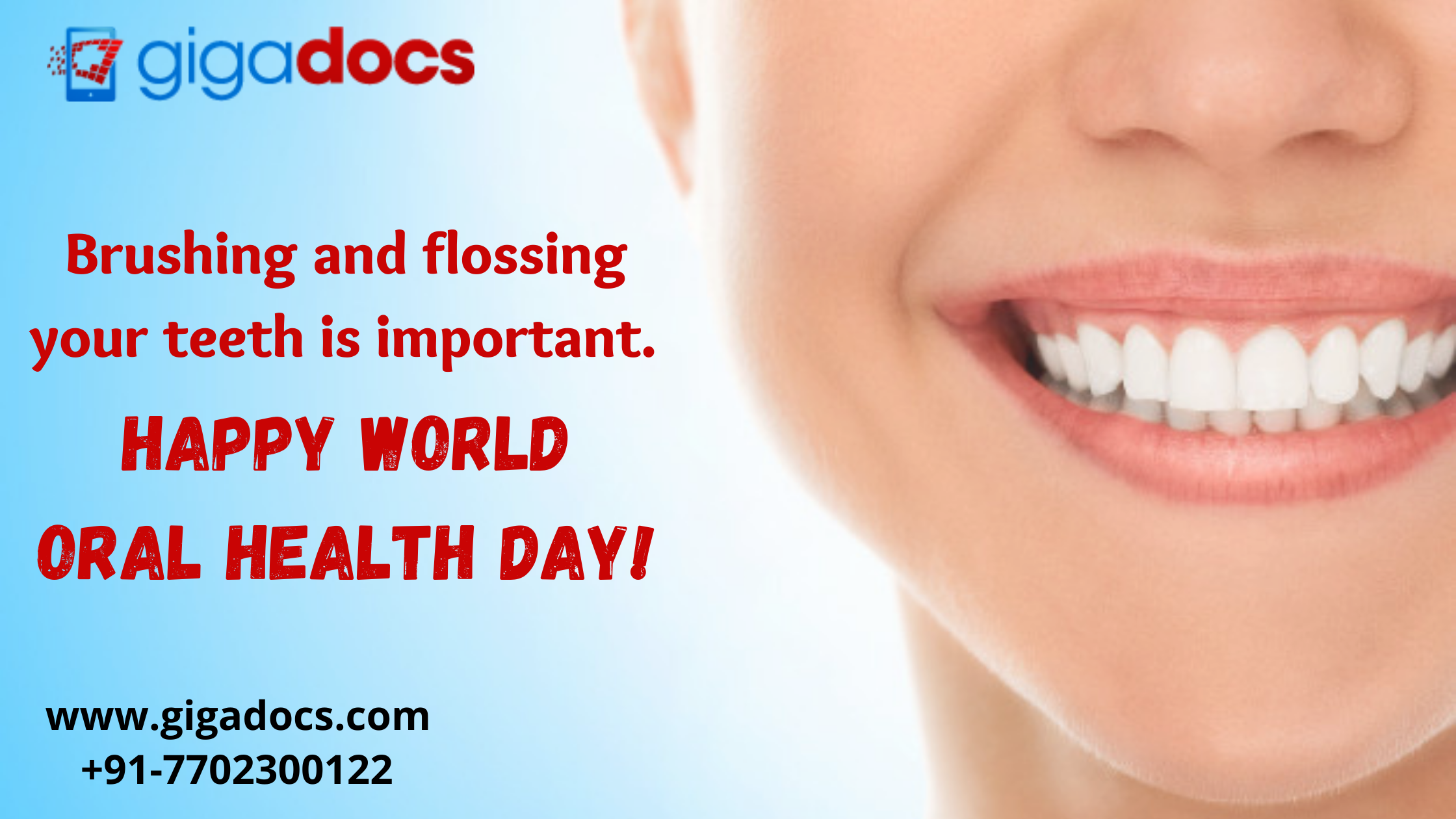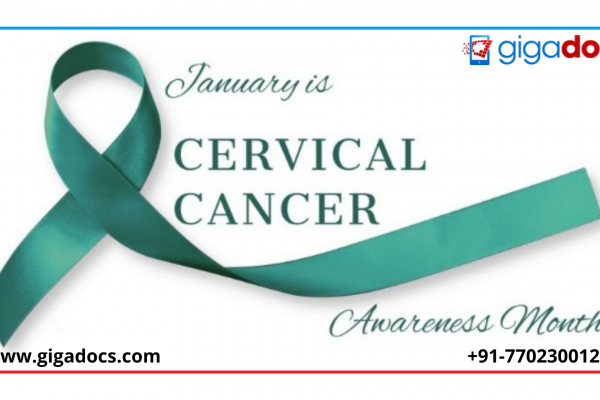Bones are the body’s support system that bears all the weight. It also gives structure to the body, protects organs, and aids in freedom of movement. It’s never too early or too late to take care of your bones. Small daily health behaviors can naturally strengthen our bones and protect us from illnesses like osteoporosis.
What is Osteoporosis?
Osteoporosis is a bone disease caused when the body loses too much bone mass, thereby not making enough bone, or both. As a result, bones grow weak and can break due to a fall or even encountering tiny bumps.
The term “osteoporosis” refers to a porous bone. Healthy bones look like a honeycomb under a microscope. The pores and crevices in the honeycomb are substantially greater in osteoporosis than in healthy bone. Osteoporotic bones lose their bone density, causing them to go weak and more prone to breaking. According to studies, one in every two women and one in every four males over 50 will break a bone due to osteoporosis. Another 30% of people have inadequate bone density, putting them at risk of osteoporosis. This pre-on-set is known as osteopenia.
| Do you know? Up until roughly the age of 30, you should be able to gain more bone than you lose. After 35, bone breakdown outpaces bone formation, resulting in a steady decrease in bone mass. Thus don’t ignore calcium, vitamin D at this age for Bone strengthening and Bone health. |
Osteoporosis Symptoms
Osteoporosis usually causes no symptoms. It’s for this reason that it’s sometimes referred to as a silent disease. However, there are a few signs of osteoporosis to consider-
- A reduction in height.
- Difficulty in bending forward.
- Occasional breathing problems.
- Fractures of the bones.
- Lower back pain.
Signs of Osteoporosis
Osteoporosis can make it challenging to move around, which can contribute to feelings of loneliness and depression. Alarmingly, 20% of seniors who break their hips die within a year from complications connected to the damaged bone while undergoing replacement surgery.
Osteoporosis Causes
There are several health issues and medical procedures that raise the risk of osteoporosis, including:
| Autoimmune Disorders | Rheumatoid arthritis (RA)LupusMultiple sclerosisAnkylosing spondylitis |
| Digestive and Gastrointestinal Disorders | Celiac diseaseInflammatory bowel disease (IBD)Weight loss surgery |
| Medical Procedures | GastrectomyGastrointestinal bypass procedures |
| Cancer | Breast cancerProstate cancer |
| Hematologic/Blood Disorders | Leukemia and lymphomaMultiple myelomaSickle cell disease |
| Neurological/Nervous System Disorders | StrokeParkinson’s diseasemultiple sclerosis (MS)Spinal cord injuries |
| Blood and bone marrow disorders | Thalassemia |
| Mental Illness | DepressionEating disorders |
| Endocrine/Hormonal Disorders | DiabetesHyperparathyroidismHyperthyroidismCushing’s syndromeThyrotoxicosisIrregular periodsPremature menopauseLow levels of testosterone and estrogen in men |
| Other Diseases and Conditions | AIDS/HIVChronic obstructive pulmonary disease (COPD)Female athlete triad Chronic kidney diseaseLiver disease, including biliary cirrhosisOrgan transplantsPolio and post-polio syndromePoor dietMalnutritionScoliosisWeight loss |
World Osteoporosis Day
Every year on October 20th, World Osteoporosis Day is observed worldwide to raise awareness about the illness that has a severe impact on a person’s bone health. The National Osteoporosis Society of the United Kingdom was the first to commemorate the day in 1996. ‘Serve Up Bone Strength’ is the theme for this year.
Risk Factors for Osteoporosis
Some of the risk factors for osteoporosis are under your control, such as-
- Eating habits: If your body doesn’t get enough calcium and vitamin D, you will likely develop osteoporosis. Eating disorders such as bulimia and anorexia are risk factors.
- Sedentary (inactive) lifestyle: Couch potatoes have a higher risk of osteoporosis than active people.
- Tobacco use: Smoking raises your chances of developing osteoporosis.
- Alcohol consumption: Having two (or more) drinks each day increases the risk of osteoporosis.
Osteoporosis Diagnosis
Before complications start, your healthcare professional might conduct a bone density test to check your bone health. Also known as the DEXA scan, it is recommended for all women over the age of 65. For women with risk factors for osteoporosis can go for a DEXA scan even at an early age. Men over the age of 70 and younger men with risk factors can also ask their orthopedic for a bone mineral density test.
Osteoporosis Prevention | Tips to Prevent Osteoporosis
- You’ll need a calcium-rich diet to keep your bones strong and healthy.
- The recommended daily calcium intake is 1,000 mg to 1,200 mg for senior males and females, respectively.
- Milk, broccoli, calcium-fortified drinks and bread, dried figs, and calcium supplements are all excellent calcium sources.
- If you need calcium supplements, keep in mind that your body can only absorb 500 mg at a time. Thus, calcium supplements should be taken in divided doses.
- Taking more calcium than the RDA can be dangerous; it can increase the risk of kidney stones, calcium buildup in blood vessels, and constipation.
- Vitamin D is also crucial because it aids calcium absorption in the body. Every day, seniors require 800 IU of vitamin D.
- Sunlight exposure a few times a week or fortified milk are both good vitamin D sources.
- Bone loss can be slowed by following a healthy lifestyle. Walking, jogging, aerobics, and weightlifting are the healthiest exercises for strengthening bones because they force your muscles to work against gravity.
- Don’t overindulge in alcoholic drinks. Avoid tobacco consumption.
- Caffeine should not be consumed in excess.
Vitamins for Bones
If you have osteopenia- an alarming sign of bone weakness, don’t ignore it and seek expert consultation—orthopedics advise exercise, vitamin, and mineral supplements to treat osteoporosis. Recommendations include weight-bearing, resistance, and balance exercises to build bone strength.
Bone Health and Osteoporosis Treatment with Gigadocs
Even if you are not yet 65 (for women) or 70 (for males) but have persistent joint pain or other symptoms, as discussed in this blog, don’t wait to speak with the top orthopedics. Fractures have the potential to change or end your life. Book your digital consultation on the Gigadocs app if you have severe back pain that comes on suddenly.
Download the Gigadocs app to collect points and redeem it on your consultation on Gigadocs:
- IOS App – apple.co/2W2iG4V
- Android App – bit.ly/33AQoRC
To schedule a demo e-mail, at info@gigadocs.com




